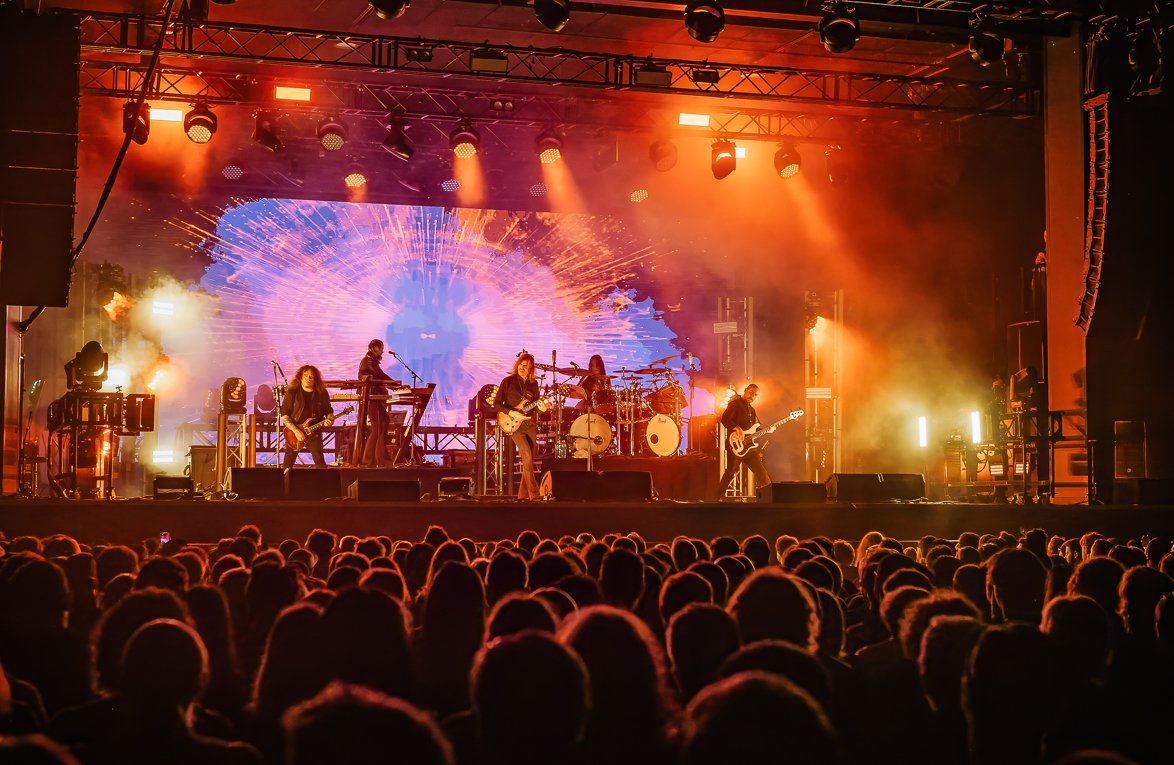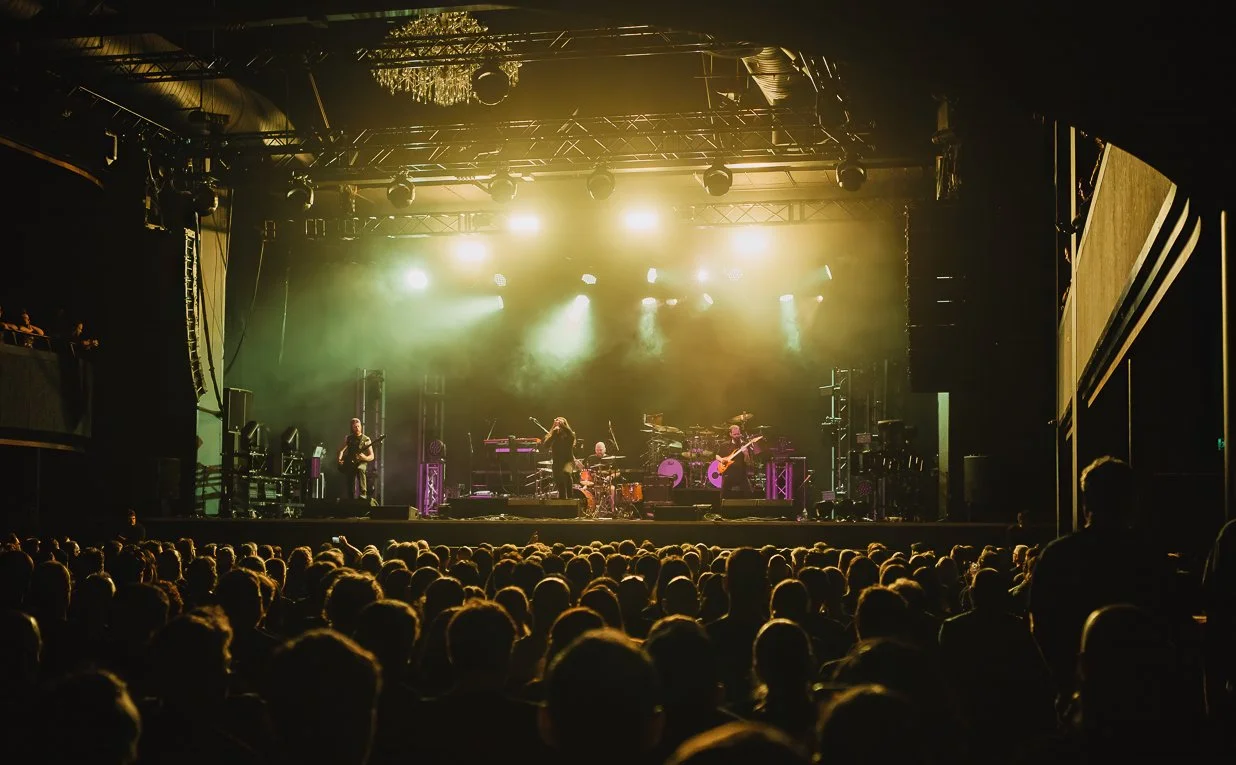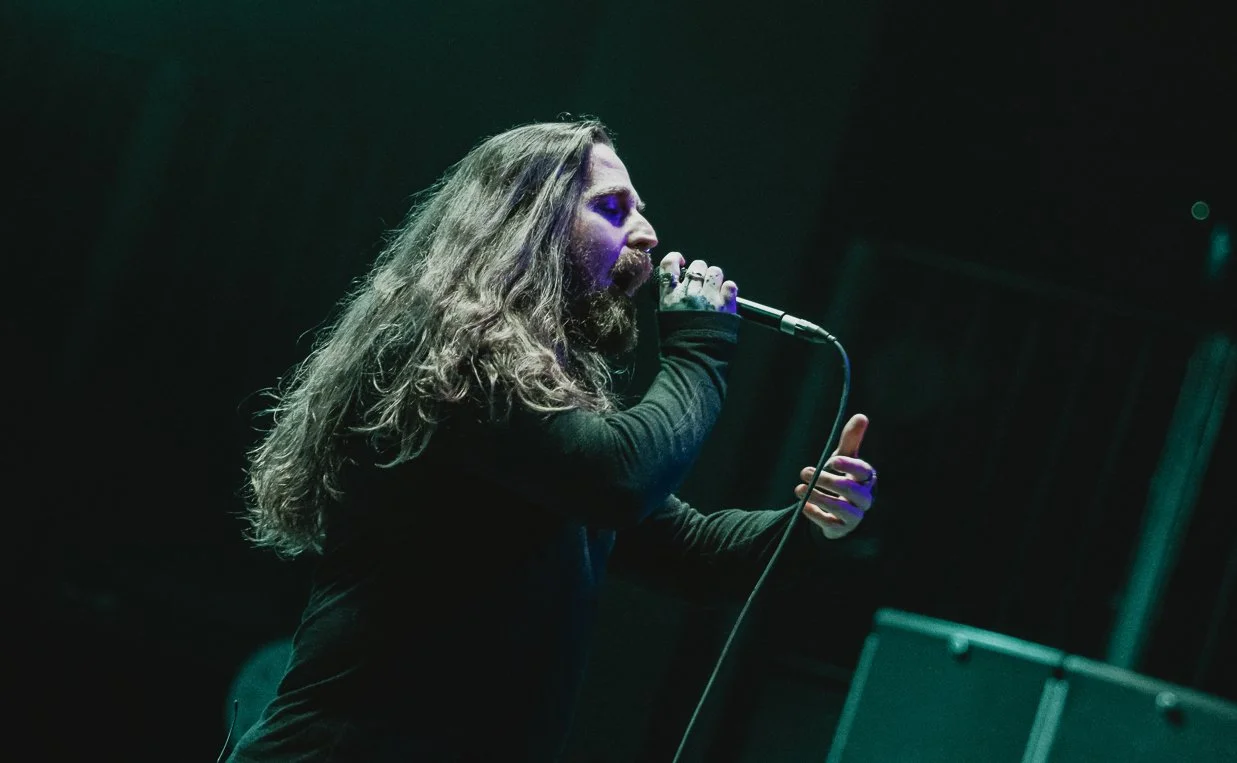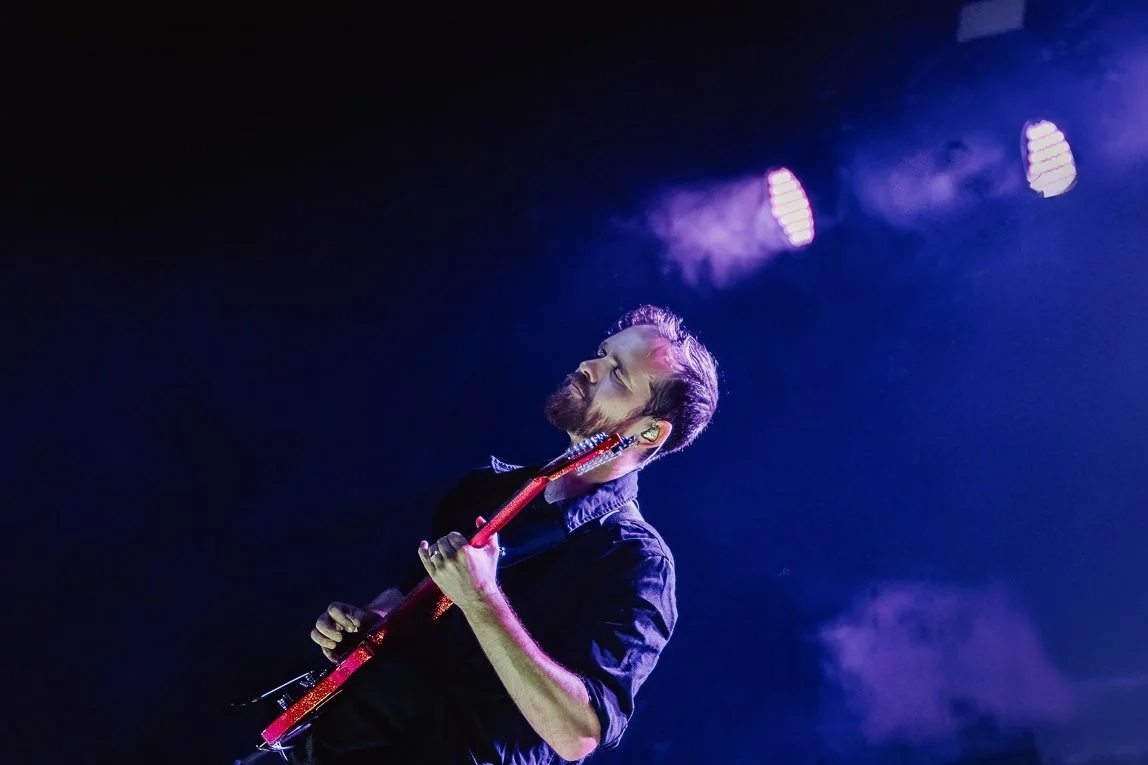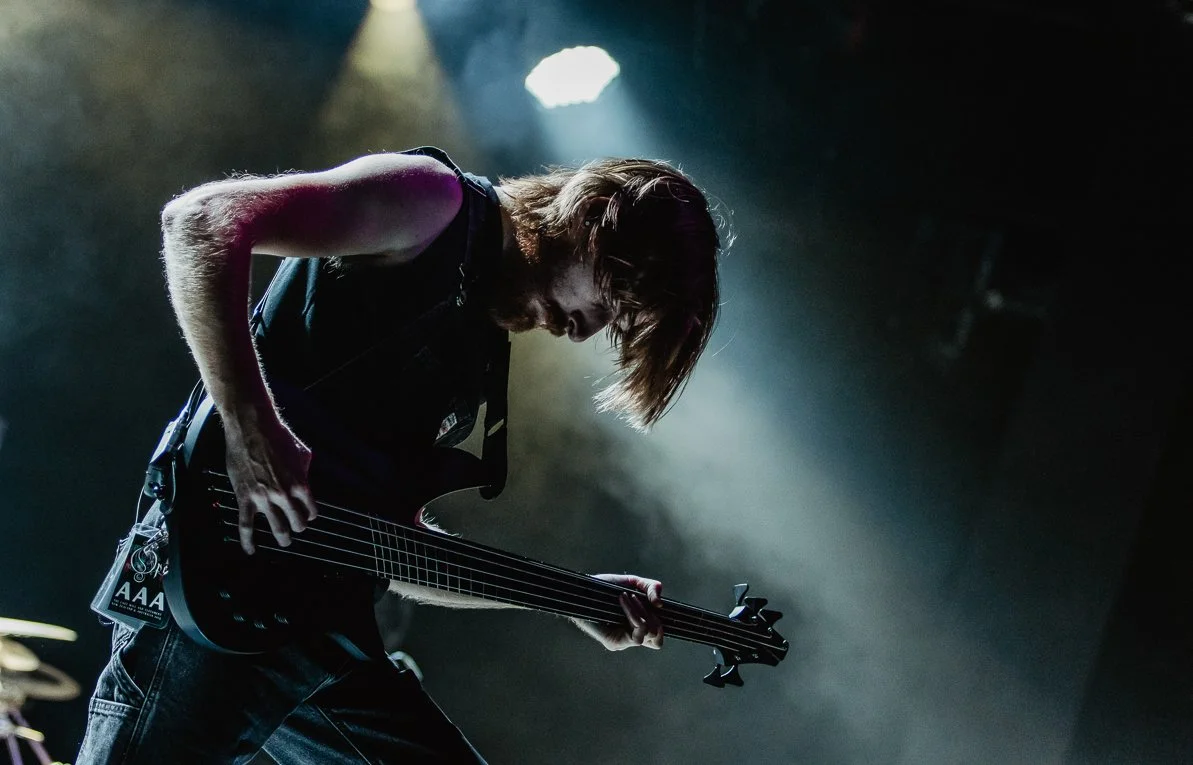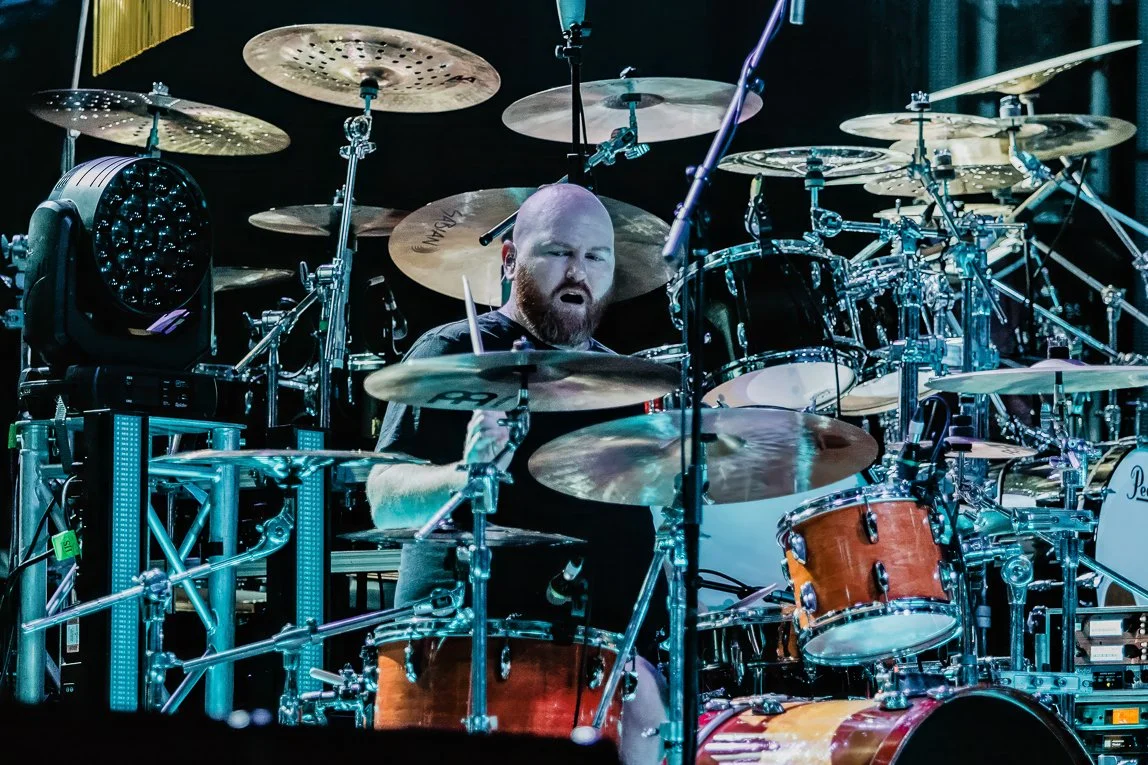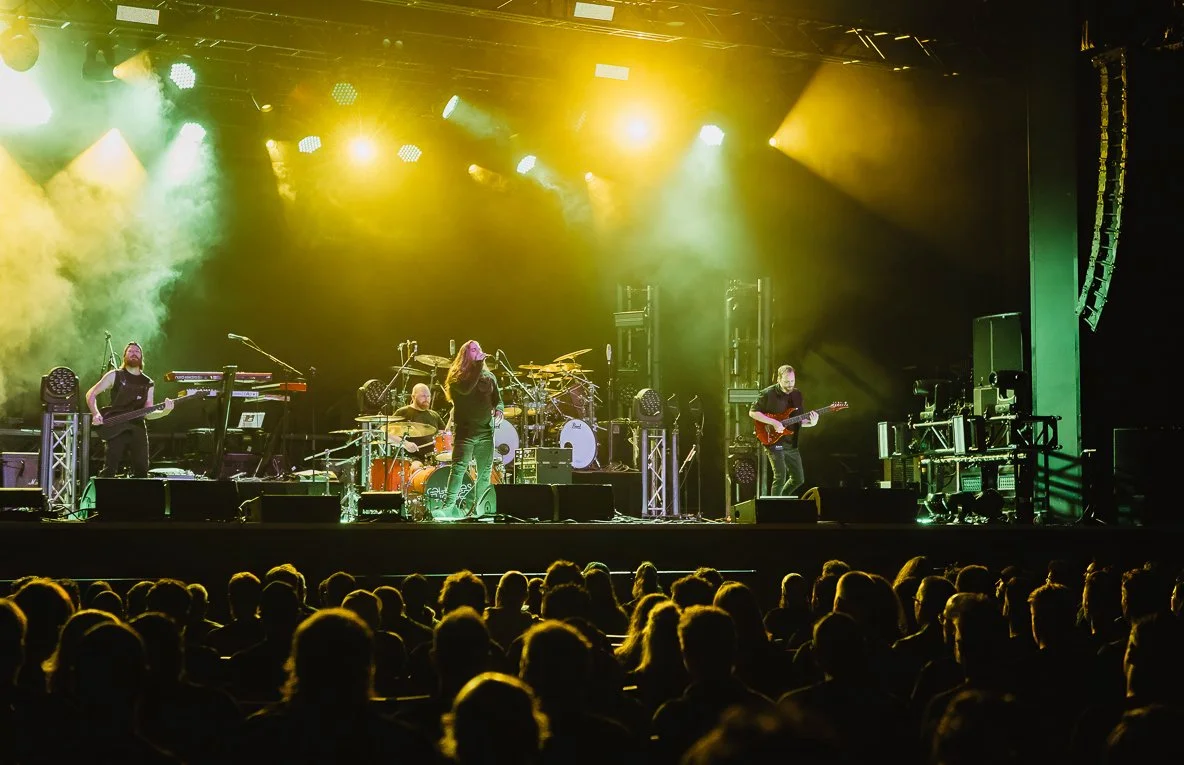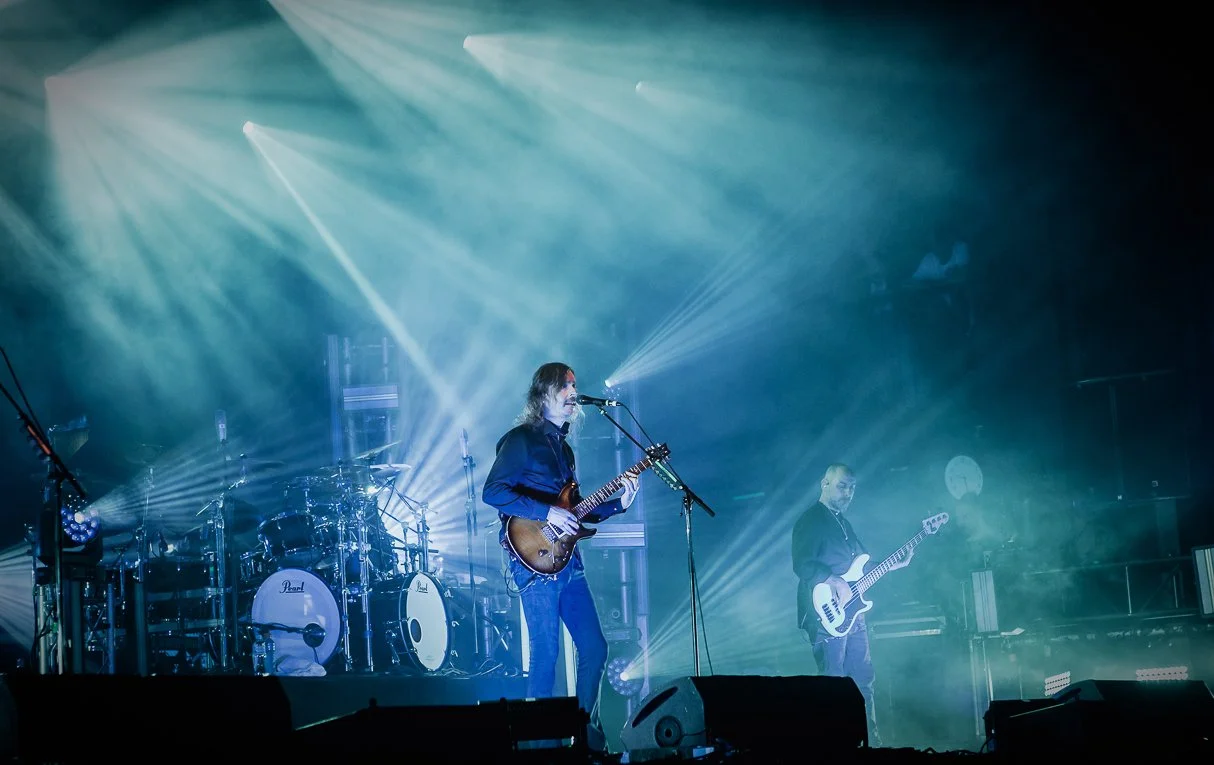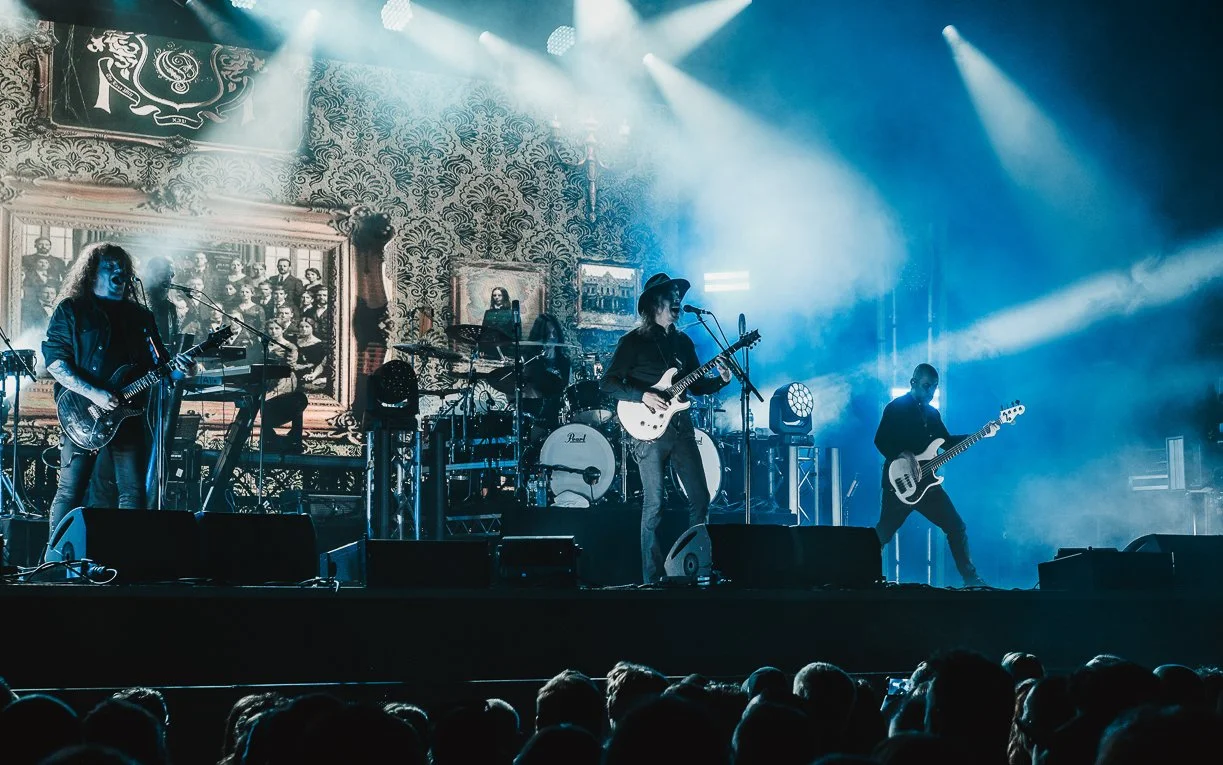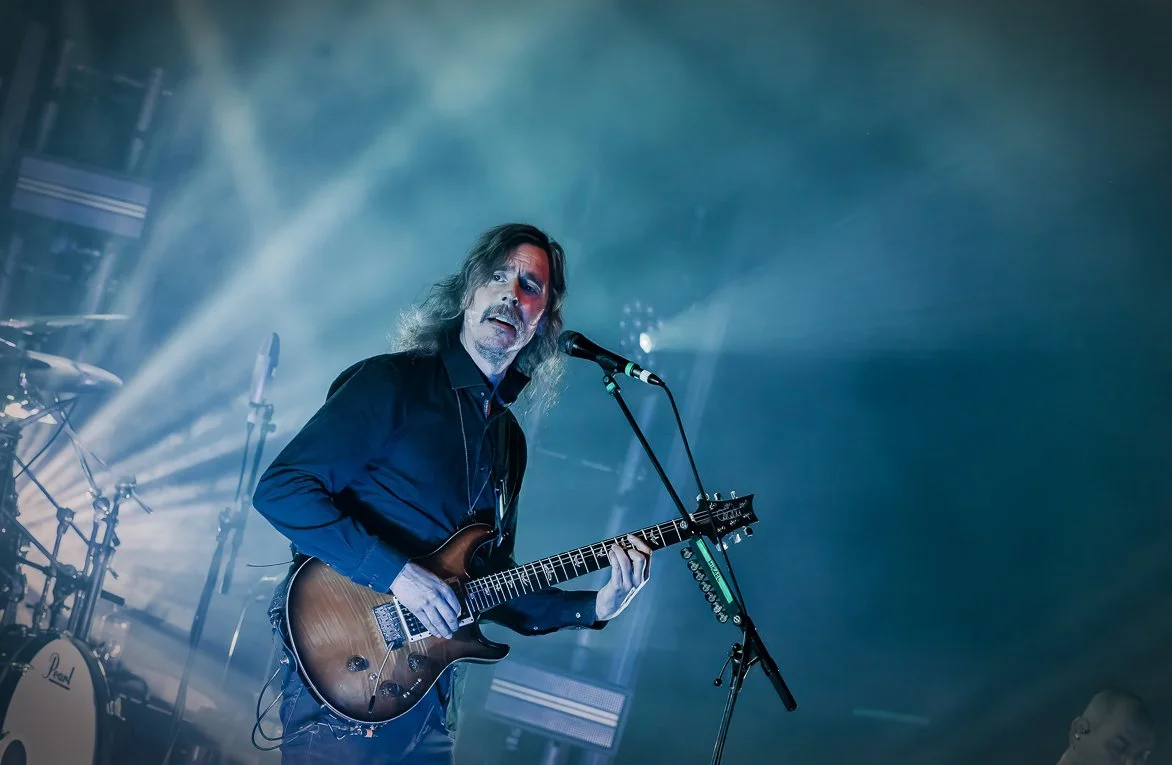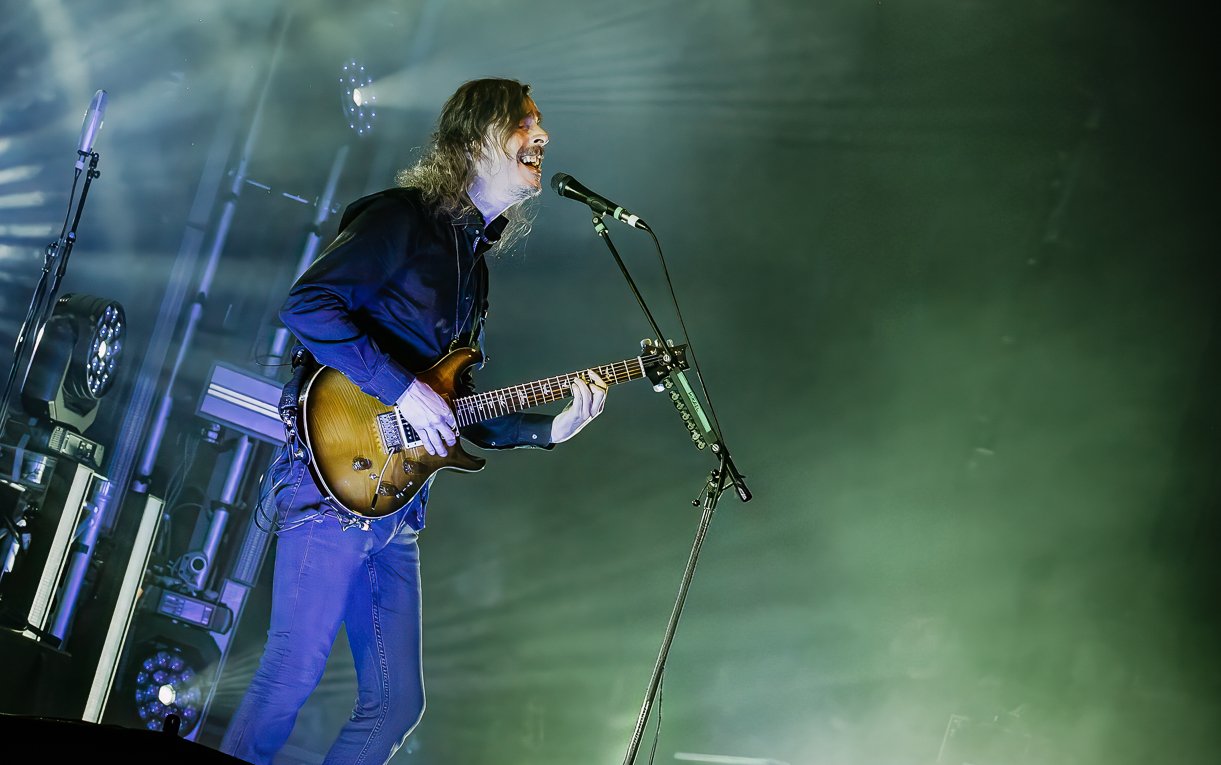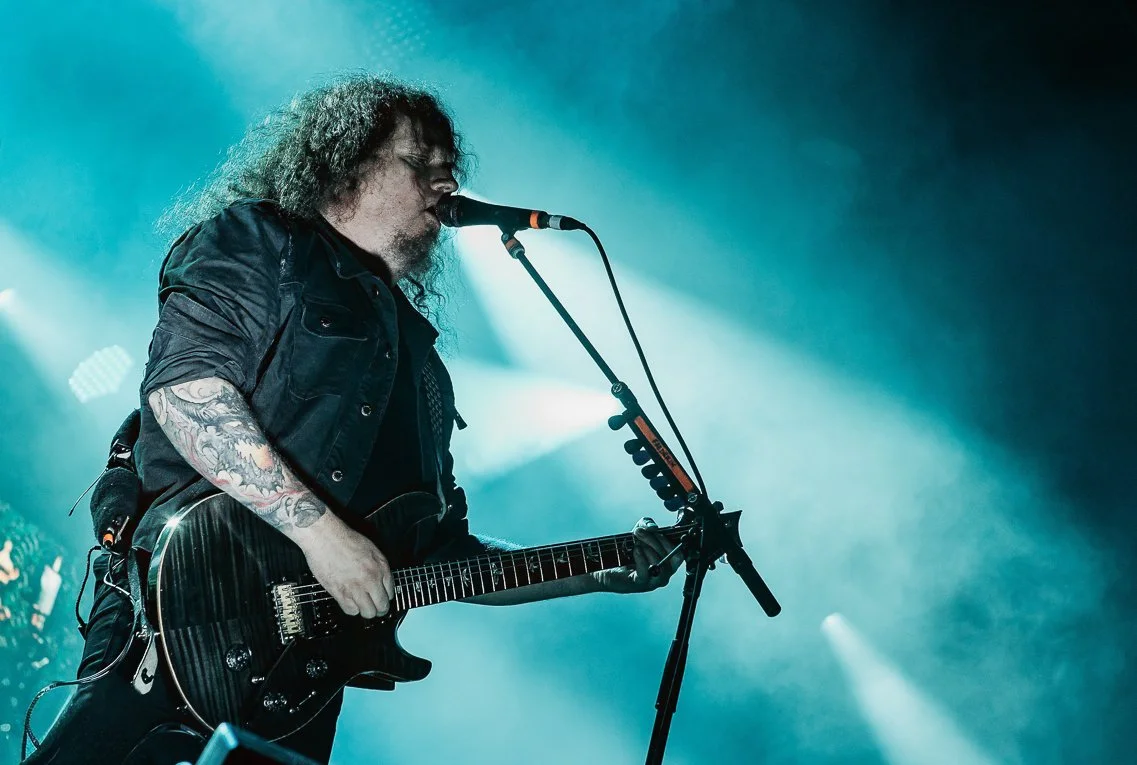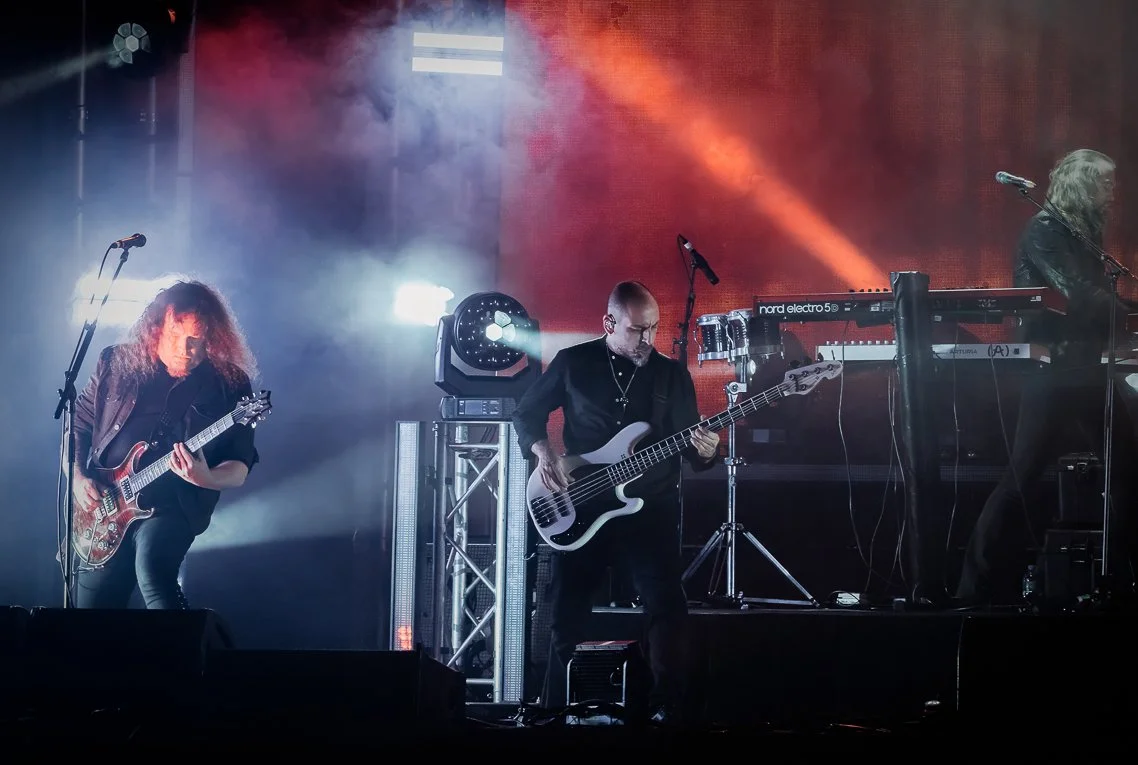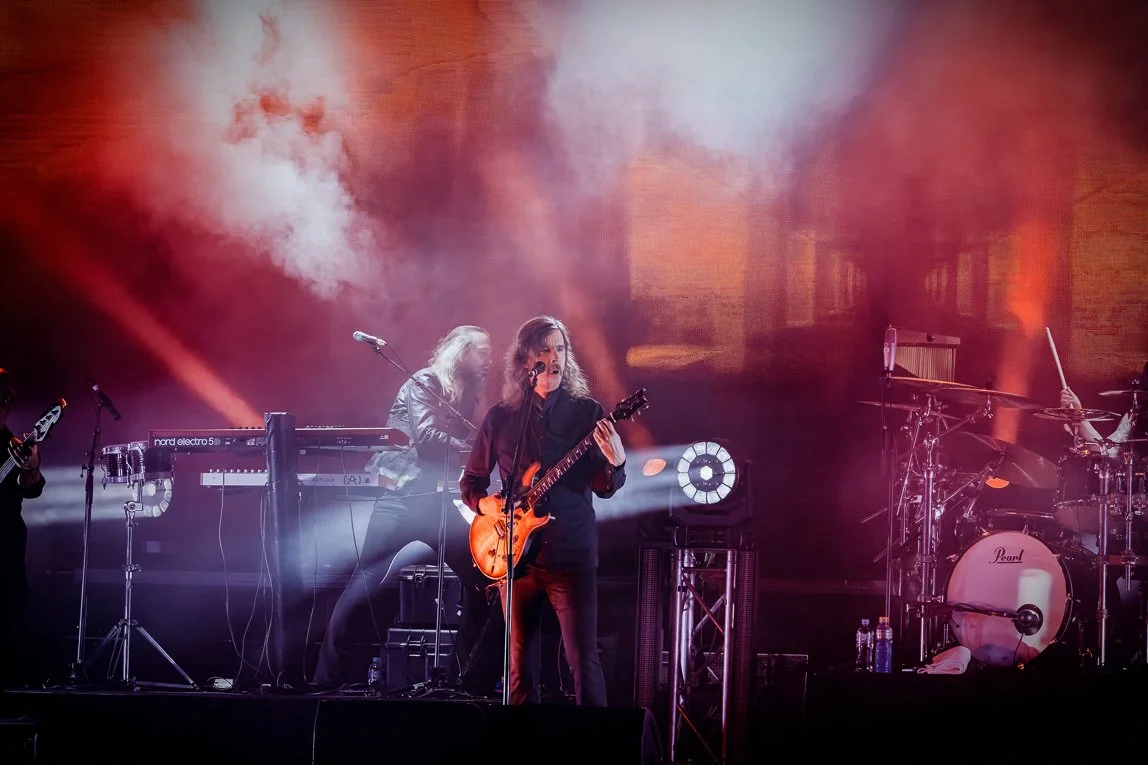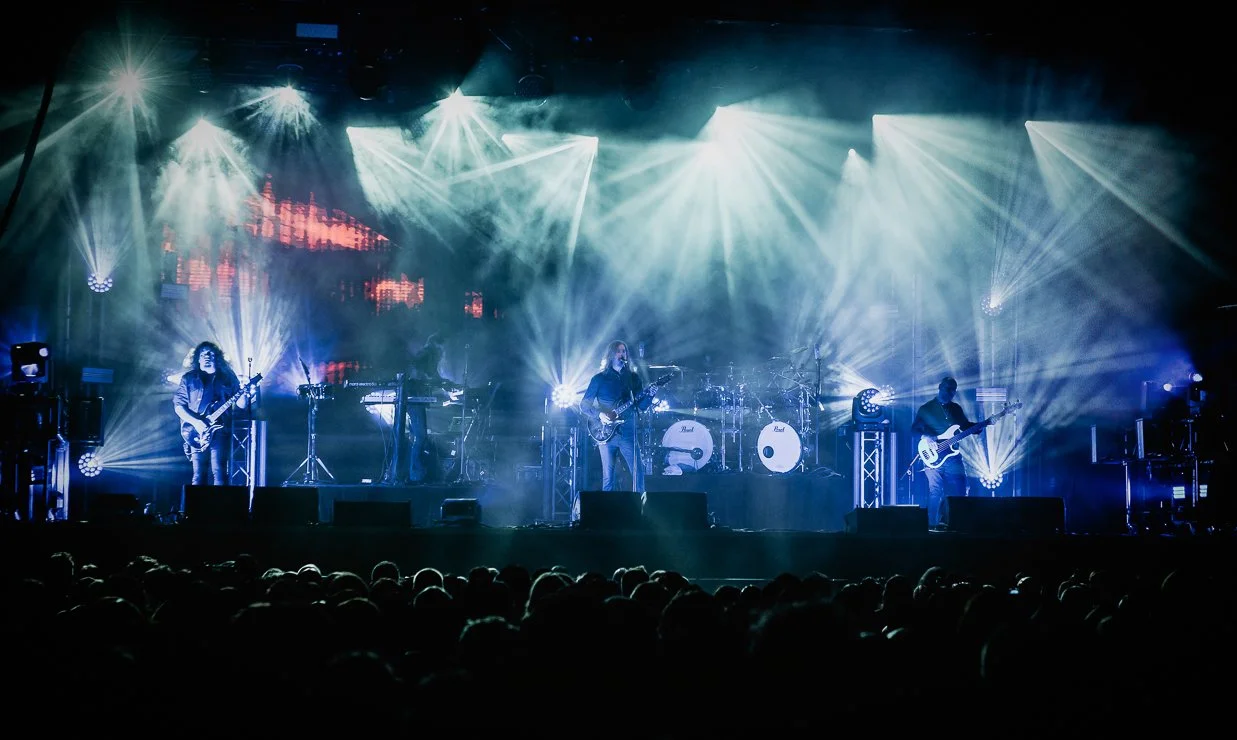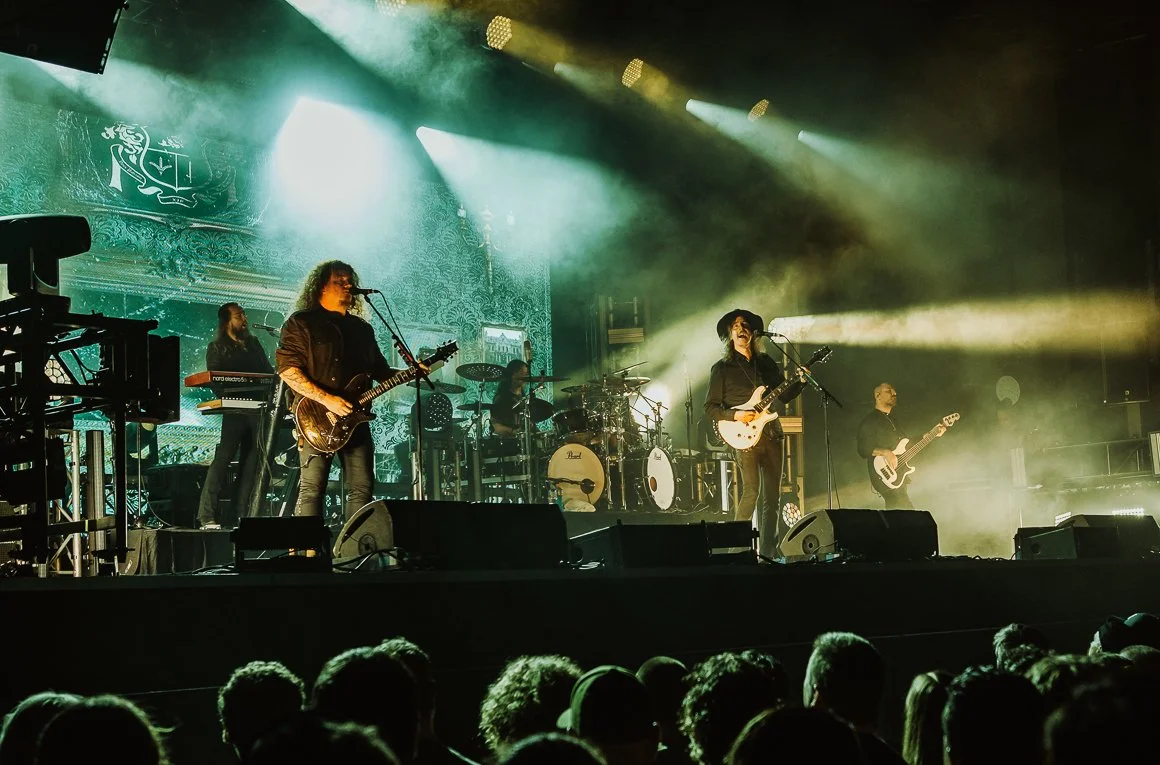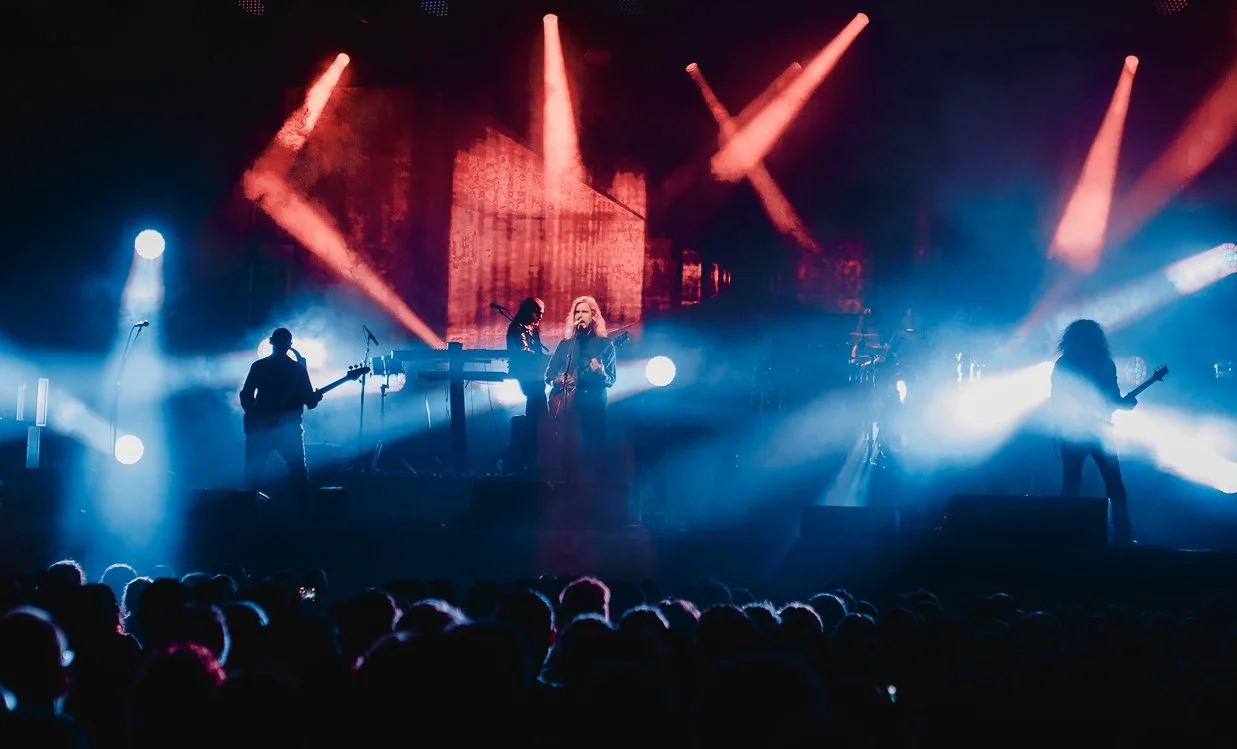LIVE REVIEW: OPETH + CALIGULA'S HORSE @ THE FORTITUDE MUSIC HALL 20/11/25
The LAST WILL and TESTAMENT Tour
Words by Cecilia Pattison-Levi. Photos Charlyn Cameron.Progressive heavy metal band Opeth brought their critically acclaimed album, ‘The Last Will and Testament’ and fan favourites back to Brisbane, marking their first show here in almost six years. Their last visit being 2019 at the Tivoli. It was mentioned by the lead singer: “In 2019 we played that venue – the one with the 70’s feel”. The five-piece line-up: Mikael Åkerfeldt (guitar, vocals), Martín Méndez (bass), Fredrik Åkesson (guitar, backing vocals), Joakim Svalberg (keyboards, backing vocals), and Waltteri Väyrynen (drums) brought back their heavy sound and local band Caligula’s Horse to thrill fans with their dynamic soundscapes.
The evening, in a seated Fortitude Valley Music Hall that was so wrong for these two bands, was commenced by the outstanding Brisbane band Caligula’s Horse. The band comprises of Jim Grey (vocals), Sam Vallen (lead/rhythm guitar), Josh Griffin (drums), and Dale Prinsse (bass). I have heard the band’s music on vinyl and their work producing and mixing other band’s work, but I must admit I was taken by surprise and left deeply impressed with their music and performance style. Why had I not seen them before? Caligula’s Horse, on the evidence of their performance, were just terrific live and are undeniable leaders in their style and genre of heavy metal.
The love in the room for the local band Caligula’s Horse was up-front as every note, every lyric, and every huge guitar solo was adored by the fans. The band’s progressive metal style is something to behold. The openness of the stage, their beautiful lighting, and the polished sound gave the crowd every indication that this show was going to be, unfortunately short, but in the five songs delivered an all-encompassing experience: visually, technically, and musically.
Caligula’s Horse were up front and honest with their adoring fan base. “Look! We know that people have come here to see Opeth – not us,” quipped Jim Grey. “Our set will be short and sweet”. And it was. The songs ‘Dream The Dead’, the beautiful ‘Bloom’, ‘Marigold’, ‘The Ascent’ and ‘Mute’ were delivered with a minimum of fuss and a tonne of talent. The atmospheric and transportive melodic rock and that beautiful voice just can take you away. The empty and sold-out merch stand also told the story – Caligula’s Horse were loved!
I had never seen Opeth before, so I was looking forward to getting down the front to the barrier to enjoy this band. However, that was not meant to be. When I first saw the seats laid out on the floor of the venue, I was shocked and confused. I could not understand why a heavy metal concert would be arranged this way. If they put the seats in the mezzanine, I would have understood. I wondered if the band planned to perform their entire new album ‘The Last Will and Testament’ in order, from beginning to end, as a complete listening experience. This sit-down delivery mode would have made sense because the album is a complex concept piece. And I would have sat patiently through the delivery of that performance. But it wasn’t!
When the lights went down and without a hello, the Swedes opened their set with paragraph ‘§1’. It is the first track from their new record. ‘The Last Will and Testament’ is an album whose songs are simply titled from 1 to 7, each representing a legal notational paragraph of a will or testament. It is a concept album that records the story about the death of a family patriarch and the chaos that follows. It explores themes of inheritance, betrayal, identity, judgment, and redemption. ‘§1’ is the narrative told from the father’s vantage point as he prepares his will to blow out the family secrets. It was a great way to begin the evening.
Without any chat, the beautiful backdrops and lighting lit up the stage. Opeth delivered the next two songs in quick succession, ‘Master's Apprentices’ and ‘The Leper Affinity’, both tracks from their early 2000’s albums. What was clear on the first three tracks of the evening was that Opeth were going to deliver an intricate set of narratives with complex arrangements. But the surprising factor was the raw energy, heaviness, and emotional force coming from the stage. It was reflected back from the crowd on the mezzanine, but the energy got lost in the seated crowd on the floor.
After the first three songs, Mikael Åkerfeldt greeted the crowd with a warm: “It is nice to be back,” then joked about how far the trip was, his jetlag, and being a middle-aged man, and his memories of the Tivoli. He ended with: “Sorry about the seats.” He tried to explain it and he made the crowd laugh. But the vibe of the concert was just off due to the seating and it made the crowd behaviour weird as well – there was an undertone of aggression and frustration – not in the standing areas. I checked. It was just odd! Nearly 85% of the floor space was filled with chairs. The crowd was expected to sit while listening to some of the best heavy metal music on the planet. He apologised.
The music continued with paragraph ‘§7’. It is the final song of the new album, and the ghosts of Jethro Tull could be heard. ‘§7’ is a mid-tempo track that brings the story of the testament to its conclusion. The song gradually moves toward a feeling of calm, resolving the tension created throughout the album as Mikael Åkerfeldt’s deep and resonant growl ignited the song and the crowd. Then, the “genius back catalogue songs” ‘The Devil's Orchard’ and ‘The Grand Conjuration’ followed.
The set hit peak highlight with the fabulous ‘To Rid The Disease’, that was just superbly delivered. Then, it was back to the most technically complex song ‘§3’. From the front, where I got myself a standing position, you could hear the change in the guitar riffs. The song highlighted the depth of the band’s writing and instrumentation skills. The vocal delivery was a challenge and you could see and feel it, and watching it live made the complexity even more impressive.
Then Opeth took everyone back to the 1990s as we were told “Not a great decade for music. I was 16 when I joined this band. But we released a few songs in the 90s that people liked, not radio though – they didn’t play us on the radio. We’re not radio friendly”. Then, the crowd roared at the statement. And the band performed ‘Demon Of The Fall’ and ‘Ghost of Perdition’. The song uses an open tuning of D major: “It’s simple, anyone can do it,” stated Mikael Åkerfeldt. He spent a moment adjusting his green guitar that looked brown in the lights. Then, the band launched into the ten- minute track with its intricate structure, with clear shifts between heavy and gentle acoustic guitar verses. It was a great way to end the regulation set.
The encore was 2002’s ‘Deliverance’. It was delivered in a fast and furious manner and was the sound that defined Opeth’s style. As the final chords and notes faded away, I was grateful for being able to experience the visual and sonic soundscape that Opeth had created.

